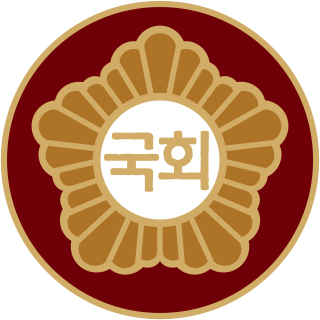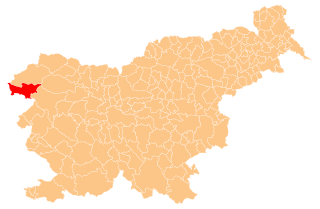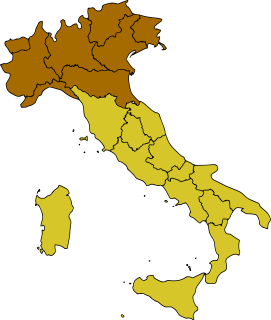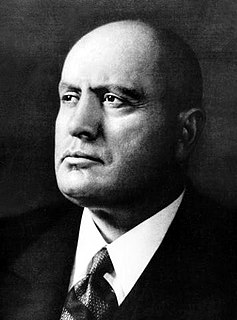Mixed-member proportional (MMP) representation is a mixed electoral system in which voters get two votes: one to decide the representative for their single-seat constituency, and one for a political party. Seats in the legislature are filled firstly by the successful constituency candidates, and secondly, by party candidates based on the percentage of nationwide or region-wide votes that each party received. The constituency representatives are elected using first-past-the-post voting (FPTP) or another plurality/majoritarian system. The nationwide or region-wide party representatives are, in most jurisdictions, drawn from published party lists, similar to party-list proportional representation. To gain a nationwide representative, parties may be required to achieve a minimum number of constituency candidates, a minimum percentage of the nationwide party vote, or both.

The National Assembly of the Republic of Korea, often shortened to the National Assembly in domestic English-language media, is the 300-member unicameral national legislature of South Korea. Elections to the National Assembly are held every four years. The latest legislative elections were held on 13 April 2016. Single-member constituencies comprise 253 of the assembly's seats, while the remaining 47 are allocated by proportional representation. Members serve four-year terms.

The National Assembly is the lower house of the Parliament of South Africa, located in Cape Town, Western Cape Province. It consists of four hundred members who are elected every five years using a party-list proportional representation system where half of the members are elected proportionally from 9 provincial lists and the remaining half from national lists so as to restore proportionality.

The Julian March or Julian Venetia is an area of southeastern Europe which is divided among Croatia, Italy and Slovenia. The term was coined in 1863 by Italian linguist Graziadio Isaia Ascoli to demonstrate that the Austrian Littoral, Veneto, Friuli and Trentino had a common Italian linguistic identity. Ascoli emphasized the Augustan partition of Roman Italy at the beginning of the Empire, when Venetia et Histria was Regio X.

The Citizens' Union for South Tyrol is a national-conservative political party active in South Tyrol, Italy.
Ethnic parties aim to represent an ethnic group in a political system, be it a sovereign state or a country subdivision. An alternate designation is 'Political parties of minorities', but they should not be mistaken with regionalist or separatist parties, whose purpose is territorial autonomy.

Maximilian Fabiani, commonly known as Max Fabiani was a cosmopolitan trilingual Slovenian Italian architect and town planner of mixed Italian-Austrian ancestry, born in the village of Kobdilj near Štanjel on the Karst Plateau, County of Gorizia and Gradisca, in present-day Slovenia. Together with Ciril Metod Koch and Ivan Vancaš, he introduced the Vienna Secession style of architecture in Slovenia.
The Middleton and Prestwich by-election, 1940 was held for the Middleton and Prestwich constituency on 22 May 1940.

General elections were held in Italy on Sunday, 2 June 1946. They were the first after World War II and elected 556 deputies to the Constituent Assembly. Theoretically, a total of 573 deputies were to be elected, but the election did not take place in the Julian March and in South Tyrol, which were under military occupation by the United Nations.

The Greens (Verdi–Grüne–Vërc) are a regionalist, green political party active in South Tyrol, northern Italy. Once the provincial section of the Federation of the Greens, the party is now autonomous and often forms different alliances at the country-level.

Italianization is the spread of Italian culture, people, or language, either by integration or assimilation.
The Slovene Union is a centrist political party in Italy representing the Slovene minority in the Friuli-Venezia Giulia region. Its Slovenian language name means literally "Slovene Community", but the denomination "Slovene Union" is used in other languages.
The Slovenian Democratic Union was a Slovenian liberal political party, active between 1989 and 1991, during the democratization and the secession of the Republic of Slovenia from Yugoslavia.

Engelbert Besednjak was a Slovene Christian Democrat politician, lawyer and journalist. In the 1920s, he was one of the foremost leaders of the Slovene and Croat minority in the Italian-administered Julian March. In the 1930s, he was one of the leaders of Slovene anti-Fascist émigrés from the Slovenian Littoral, together with Josip Vilfan, Ivan Marija Čok and Lavo Čermelj. He is considered one of the best Slovene public speakers of the 20th century.

The Italian Social Movement, renamed in 1972 Italian Social Movement – National Right, was a neo-fascist and post-fascist political party in Italy.
Slovene minority in Italy, also known as Slovenes in Italy is the name given to Italian citizens who belong to the autochthonous Slovene ethnic and linguistic minority living in the Italian autonomous region of Friuli – Venezia Giulia. The vast majority of members of the Slovene ethnic minority live in the Provinces of Trieste, Gorizia, and Udine. Estimates of their number vary significantly; the official figures show 24.706 Slovenian speakers in Friuli-Venezia Giulia, as per the 1971 Census, but Slovenian estimates speak of 83,000 to 100,000 people.

The Municipality of Kobarid is a municipality in the Upper Soča Valley in western Slovenia, near the Italian border. The seat of the municipality is the town of Kobarid. The municipality was established on 3 October 1994, when the former larger Municipality of Tolmin was subdivided into the municipalities of Bovec, Kobarid, and Tolmin.

The European Parliament election of 2014 in Italy took place on 25 May 2014. Italy elected 73 MEPs out of 751 European Parliament seats.

The South Tyrolean independence movement is a political movement in the Italian autonomous province of South Tyrol that calls for the secession of the region from Italy and its reunification with neighboring Austria. Concurrently, some groups favor the establishment of an interim Free State of South Tyrol as a sovereign nation while reintegration is organized.
The Deutscher Verband was a coalition of bourgeois German speaking political parties that was formed in South Tyrol in 1919 after the region was annexed by Italy. It was a merger of the Catholic Tiroler Volkspartei and the national liberal Deutschfreiheitliche Partei. The German speaking Social Democrats, for their part, joined with the Italian Socialist Party.

















